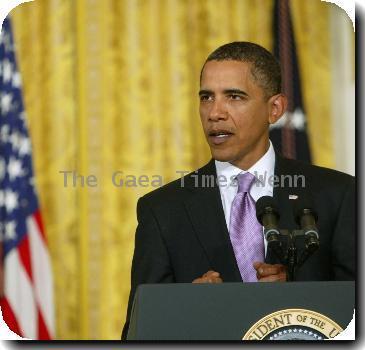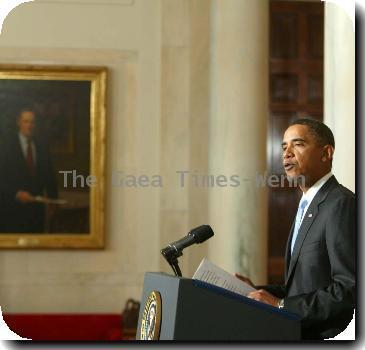AP Exclusive: US recovers Chile’s last weapons-grade uranium, a model Obama can show the world
By Michael Warren, APThursday, April 8, 2010
AP Exclusive: Chile gives US weapons-grade uranium
SANTIAGO, Chile — With President Barack Obama shifting his nuclear nonproliferation strategy to rogue states and terrorists, Chile has become an example of how small countries can play a big part in making the world safer.
Vast amounts of highly enriched uranium, or HEU, is being stored in relatively insecure locations around the world. Just 25 kilograms (55 pounds) of it — the size of a grapefruit — could create a mushroom cloud of radioactivity and devastate an entire city if detonated.
At a nonproliferation summit Monday in Washington, Obama will encourage leaders from 47 countries to work with the U.S. to secure and remove this weapons-grade HEU from reactors, as Chile finally did last month.
“We are happy to see it go,” Fernando Lopez of the Chilean Nuclear Energy Commission told The Associated Press, which exclusively witnessed the secret transfer of the material from reactors near Santiago to the United States.
“Countries normally don’t want to be loaded with waste from other countries,” Lopez acknowledged. “To put it in a safe place is valuable for everybody.”
The new U.S. strategy considers a nuclear attack by terrorists or the spread of nuclear weapons technology to rogue nations to be greater threats than the Cold War fear of a communist enemy initiating a nuclear Armageddon.
Obama acknowledged the reduced threat from old enemies as he and Russian President Dmitry Medvedev signed a treaty Thursday to reduce the number of nuclear warheads their governments have ready to fire.
“For the first time, preventing nuclear proliferation and nuclear terrorism is now at the top of America’s nuclear agenda,” Obama said.
Even as aftershocks from last month’s magnitude 8.8 earthquake shook their equipment, U.S. and Chilean engineers worked together to carefully extract Chile’s last HEU. It was no simple operation — the radioactive material was carefully loaded into specially designed casks and then lowered into two huge shipping containers for the ocean voyage. All told, 60 tons of metal were needed to keep just 18 kilograms (40 pounds) of HEU from leaking radioactivity.
After two and a half weeks at sea, including passage through the Panama Canal, a specially outfitted double-hulled ship arrived under U.S. Coast Guard escort at the Charleston Weapons Station in South Carolina last month.
Customs agents and nuclear inspectors made radiation checks as the containers were loaded onto flatbed trucks and then driven to the Savannah River Site in South Carolina and the Y-12 National Security Complex in Oak Ridge, Tennessee, where much of it will be converted to safer fuel and resold for nuclear power.
A year ago, Obama made a promise to lead a global effort to recover all of this material within four years — ambitious because it not only requires years of planning and diplomacy, but also highly specific technology and expertise.
No other country but the U.S. has put all these elements together — even Russia depends on U.S. help to safely dispose of uranium.
The U.S. has already helped convert or verified the shutdown of 67 reactors in 32 countries from HEU to low-enriched uranium, or LEU, which is much harder to weaponize. It also has secured HEU supplies in more than 750 vulnerable buildings and removed 2,691 kilograms of weapons-grade nuclear material for safer storage.
To help keep his promise, Obama has proposed a 68 percent increase in the Global Threat Reduction Initiative’s budget to $559 million for fiscal year 2011, not only to recover more HEU but also to prevent smuggling of nuclear material by strengthening export and border controls and port security.
Next year’s $2.7 billion budget for nuclear nonproliferation work begins to do this for plutonium as well, committing $300 million for a plant at Savannah River to convert 34,000 kilograms of plutonium recovered from warheads to fuel for nuclear power.
Warren reported from Chile and Kinnard reported from South Carolina.
Tags: Barack Obama, Chile, Eastern Europe, Energy, Europe, Latin America And Caribbean, North America, Nuclear Weapons, Political Issues, Russia, Santiago, South America, South Carolina, Terrorism, United States, Utilities, Waste Management, Weapons Administration, Weapons Of Mass Destruction



